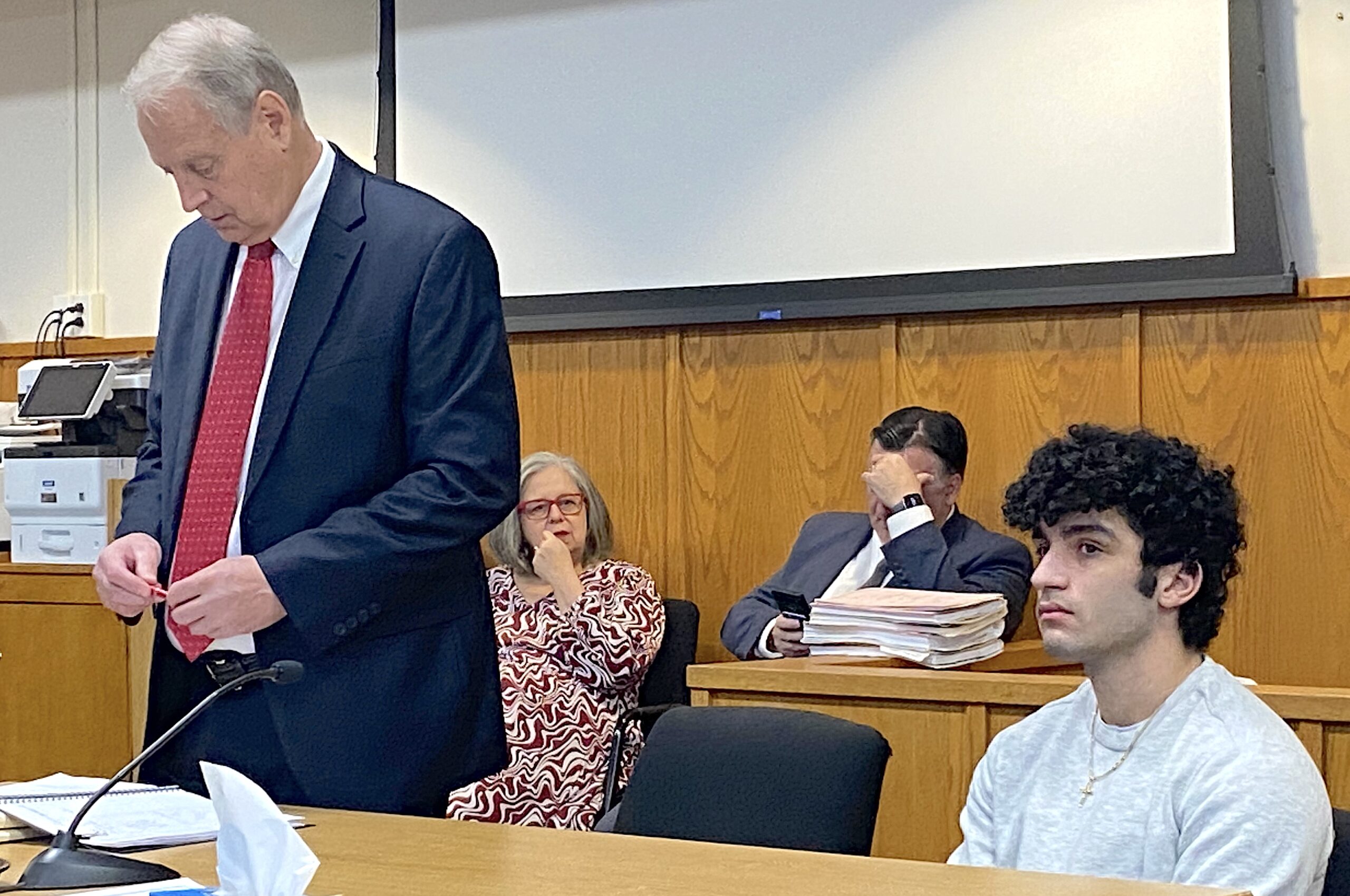Attorney for Quincy man facing grooming charge asks for bill of particulars; case set for April docket

QUINCY — The attorney for a Quincy man facing between one and three years in the Illinois Department of Corrections, if found guilty of a Class 4 felony grooming charge, says he is unable to properly prepare his defense without more information.
Giorgio Raad, 19, appeared in Adams County Circuit Court Tuesday morning with attorney Drew Schnack before Judge Tad Brenner. Raad also faces one count of sexual exploitation of a child, a Class A misdemeanor. If found guilty, Raad also would have to register as a sex offender. He has no prior criminal record.
Charging documents allege Raad used the internet on Sept. 23, 2023, to communicate and attempt to seduce, solicit or entice the child, to commit criminal sexual abuse or otherwise engage in any unlawful sexual conduct with a child or with another person claimed to be a child — in this case, a 13-year-old female victim. Raad allegedly sent pictures of his sex organs to the girl and multiple text messages of a sexual nature.
Schnack filed a motion for a bill of particulars in the Adams County Circuit Clerk’s office on Nov. 9, asking from the Adams County State’s Attorney’s office for the time, date and place when the alleged occurrence happened.
“I would ask that (the state’s attorney’s office) be given some period of time to answer that,” Schnack said to Brenner during Tuesday’s hearing.
“(Schnack) can’t just file a motion for a bill of particulars and expect the people to answer it,” Assistant State’s Attorney Josh Jones replied. “It has to be set for a hearing on that. Our practice is that unless it’s set for a hearing, we don’t respond to bills in particular. That’s what the statute requires in order to have that done. That’s been my position on these cases. If we want to set it for a hearing, that’s fine.”
“That’s fine. Set it … and waste more time,” Schnack replied. “If they don’t know the date, time and place of this crime and can’t answer it, it can’t take five minutes.”
“But Your Honor, there are rules,” Jones shot back.
After a brief exchange between Jones and Schnack, Brenner told them, “One at a time, please.”
“Five minutes,” Schnack said. “Let’s do it today.”
A hearing was set for March 15 on the motion for a bill of particulars.
Raad’s case was scheduled on the February and March dockets. Now it’s on the April docket, and when Brenner asked Schnack if he was ready for trial, Schnack replied, “Your Honor, we were ready in February, and the state needed a continuance. We were ready in March, and the state needed a continuance. We will be ready in April.”
A pre-trial hearing is set for March 22.
Schnack also asked Brenner how the schedule for trials in April will be determined.
“Our office has six cases on the docket, and two of (the defendants) are lodged,” he said. “I’m guessing that other counselors here who have clients who possibly are lodged. If not, the public defender’s office does. Trying to juggle witnesses for this amount of cases … is very difficult when we don’t have some idea of the order.”
“What I’ll say is you are very, very early on a very, very long docket,” Jones said.
“I realized that the courts sometimes defer to the state’s attorney’s office to set up the order of trials, which normally I don’t have a problem with because they’re fairly easy to deal with,” Schnack said. “But in this case, with this amount of trials and this amount of witnesses, we need some input into this.”
Brenner said cases with potential issues about violations of speedy trials will be taken first. Schnack asked if attorneys could meet — without requiring their clients to attend — to come up with a plan.
“I’ve been pushing for that for 22 years,” Jones said. “And I’ve been told, ‘It’s a rolling docket, Mr. Jones, and everybody just has to be ready when (their case is) ready. I agree. It’s absolutely an inconvenience for all of us, but it’s the system that we’ve had.”
“I don’t disagree,” Brenner said about Schnack’s request. “But I have to get to the end of (Tuesday’s docket) before I even can begin to know where we stand.”
Raad pled not guilty during his arraignment on Nov. 15.
Raad is on home confinement and wearing an ankle monitor. He was dismissed from the University of Illinois on Jan. 9. He appealed the university’s decision, and his appeal was denied. Raad is to have no access to the internet unless it was for schoolwork and no access to social media.
Miss Clipping Out Stories to Save for Later?
Click the Purchase Story button below to order a print of this story. We will print it for you on matte photo paper to keep forever.

